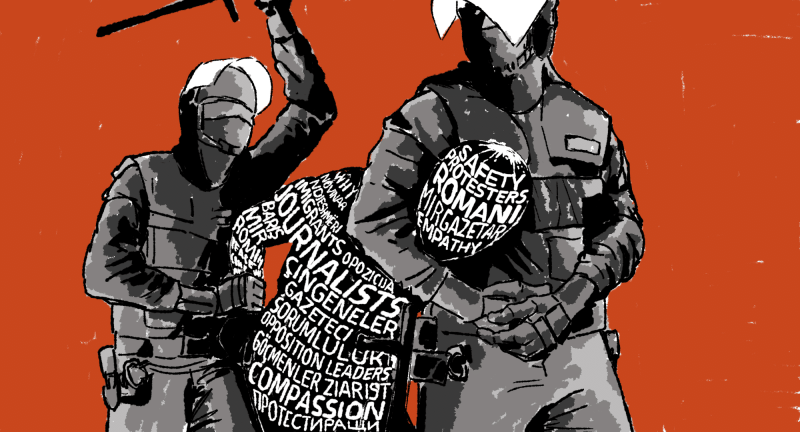
December 6, 2020: Arbitrary and excessive use of force by police on anniversary of police killing of teenager



On December 6, 2008, 15-year-old student Alexandros Grigoropoulos was shot and killed by Greek police. The anniversary of his death has ever since been marked by demonstrations and events in his memory. On December 6, 2020, despite a blanket ban on public assembly, activists and citizens called for symbolic actions of remembrance, emphasizing that protective measures (masks and distance) against covid-19 will be observed (see 1, 2).
The ban on public assembly was issued via decision 1029/8/18-k (Government Gazette 5344 / Β / 4-12-2020) by the Chief of the Hellenic Police, prohibiting all public outdoor gatherings all over Greece on December 6, 2020, with fines for non compliance. The legitimacy of this decision was questioned, however, as it was considered that the pandemic was used as a pretext to unconstitutionally suspend the exercise of the right to assembly (see more here).
The police closed metro stations, conducted checks and blocked roads in various parts of Athens and other Greek cities in order to prevent citizens from assembling (see 1 and 2). Access to the Grigoropoulos monument was also forbidden even to individuals, journalists, small groups or political party delegations complying with the necessary protection measures (see 1, 2, 3, 4, 5), which does not appear consistent with a ban on public assembly for the protection of public health alone.
Sunday, December 6, 2020, was ultimately characterised by clashes, tension, and arrests, with reports of arbitrary police repression and violence.
Video evidence has emerged showing police officers a) entering an apartment building in Exarchia and throwing a flashbang inside the building, b) destroying a bouquet of flowers left by a citizen at the place where Grigoropoulos was killed, c) pushing journalists and preventing them from accessing the spot where some citizens had reported that they were being confined by police (see 1, 2, 3, 4, 5).
Excessive police repression was also reported in other Greek cities, such as Chania (see 1, 2).
Aftermath and response
Opposition party SYRIZA released statements (see 1, 2, 3) accusing the government of using the pandemic to restrict basic rights which are essential to the rule of law.
Kaminis, then Head of Civil Protection of opposition party Movement for Change spoke of shameful images and police officers acting `like ordinary hooligans’.
Koutsoumbas, of the opposition party KKE called on the people to condemn authoritarianism.
Opposition party MeRA25 also criticized the practices of the police, with the party’s spokesman characterising events as “unacceptable, anti-democratic and authoritarian”.
In a state governed by the rule of law, the police authorities must be governed by certain principles, such as the principle of legality, the principle of proportionality, the prohibition of the abuse of police power and the respect for and protection of human rights.
Whilst the police can legally use violence in order to enforce the law, the arbitrary use of force is a dangerous phenomenon for a democracy.
The actions of the police of 6 December 2020 appear to have been characterised by the arbitrary use of force and unnecessary violence as well as the unlawful restriction of citizens’ rights.
Bank Account number: 1100 0232 0016 560
IBAN: GR56 0140 1100 1100 0232 0016 560
BIC: CRBAGRAA
![]()
In a time where the very foundations of democracy are gradually being eroded by the rise of extreme nationalism, alt-right movements, the spread of disinformation and corporate capture, the efforts of organisations such as Vouliwatch are more relevant than ever.
We rely on the generosity of each and every one of you to continue with our efforts for more transparency and accounta
By financially supporting Vouliwatch you support our litigation strategy, our campaigns for transparency and accountability in the political system, the development of new civic tech tools, our research projects and last but not least our impartial and accurate